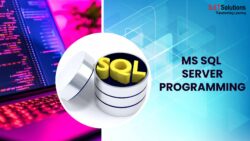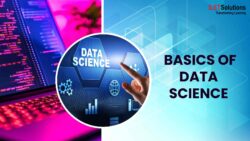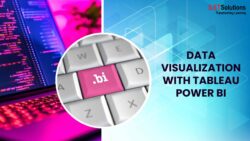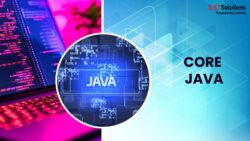This comprehensive course provides an in-depth exploration of Microsoft SQL Server, a powerful relational database management system widely used in various industries. Participants will gain hands-on experience in installing, configuring, and managing SQL Server databases, as well as mastering essential SQL programming skills. The course covers a wide range of topics, including database creation and backup, transactions, subqueries, joins, keys and constraints, indexes, views, functions, stored procedures, common table expressions, triggers, and advanced query optimization techniques. Students will also learn about error handling and logging, ensuring they have the necessary skills to develop robust and efficient database applications.
Once enrolled, our friendly support team is here to help with any course-related inquiries.
Learning Outcomes
• Understand SQL Server fundamentals and database management.
• Master SQL statements and queries (DDL, DML, DCL, TCL, DQL).
• Work with subqueries, joins, and common table expressions.
• Implement keys, constraints, and indexes.
• Design and develop views and indexes.
• Utilize SQL functions, including built-in and user-defined.
• Create and maintain stored procedures and triggers.
• Explore advanced SQL operators and query optimization.
• Implement error handling and logging techniques.
• Optimize queries for better performance.
Delivery Format
Instructor-led course
Delivered online via live virtual sessions
Scheduled every month
Course Benefits
- Career Advancement
- Flexible Learning
- Continuous Learning Opportunities
- Mini-projects/Lab activity documents/Configuration guides
- Quizzes
- Programming-based assessment
- A Capstone project
- Industry Relevance
Instructors
All courses are taught by experienced trainers with a minimum of eight years of industry experience.
Modules
1. Overview of MS SQL Server
2. Installation and Connecting to SQL
server
3. Database Creation and Backup
1. DDL Queries
2. DML Queries
3. DCL Queries
4. TCL Queries
5. DQL Queries
1. Rules to write a subquery
2. Complex subqueries
3. Subqueries Vs Join queries
4. Subqueries VS CTE
1. INNER JOIN VS CROSS JOIN
2. LEFT JOIN VS LEFT OUTER JOIN
3. OUTER JOIN VS UNION ALL/UNION
4. DELETE USING JOIN
5. SELF JOIN VS INNER JOIN
6. f) LEFT JOIN VS RIGHT JOIN
7. g) Sequences n Queries
1. Primary Key and Constraints
2. Composite Key
3. Foreign Key and Constraints
1. Clustered Index
2. Non Clustered Index
3. UNIQUE Index
4. Non Clustered Index and NON NULL
CONSTRAINT
1. Simple Views
2. Complex View
3. Indexed View
4. Dynamic Management Views
1. Sql Functions – Basics
2. Built-in Functions
3. User Defined Functions
4. Scalar Valued Functions
5. Inline Table Valued Functions
6. Multi-Statement Table Valued Functions
7. Windows Functions
8. Important Concepts in SQL Functions
1. Stored Procedures – Basics
2. Create sp with output parameters
3. Stored procedures output parameters Vs return values
4. Advantages of Stored procedures
5. Stored procedures with Datatable as Input parameter
6. Debugging Stored Procedure.
7. Dynamic SQL in Stored Procedure
1. What is CTE?
2. Derived Tables and CTE
1. What are Triggers in SQL?
2. Types of triggers
3. Logon Triggers
1. Pivot Operators
2. Expect Operators and queries
3. Intersect Operator and queries
4. SET Operators
5. Special Operator and Query optimization
1. SELECT DISTINCT
2. Using Alias in Select queries
3. Aggregate functions with GROUPBY Clause
4. Table Variables Vs Temp Tables
1. Performance oriented query
2. Execution plan Vs Query Cost
3. How to compare the estimated execution plan Vs Actual query cost
1. Error Handling in latest version of SQL Server
2. b. Error handling in Deadlock situation
3. Advanced Error Handlin-XACT_STATE
Prerequisites
• Basic knowledge of relational database concepts
• Familiarity with programming concepts and logic
• Understanding of data types and data manipulation
Audience
This course is designed for database administrators, developers, and professionals who work with Microsoft SQL Server or are interested in learning SQL programming. It is suitable for individuals with varying levels of experience, from beginners seeking a comprehensive introduction to SQL Server to experienced professionals looking to enhance their skills and knowledge in advanced SQL programming techniques. The course is particularly beneficial for those working in industries that rely heavily on database management and application development, such as finance, healthcare, e-commerce, and data analytics.
How do I Access The Program
- Buy the course online
- Save your payment transaction receipt for any future reference
- The programs will commence only upon formation of a minimum batch of 20 participants
Bulk Orders
Incase you are looking for bulk user licenses, or customized Learning Paths for various Job Roles, reach out to us with your detailed requirements.






Reviews
There are no reviews yet.